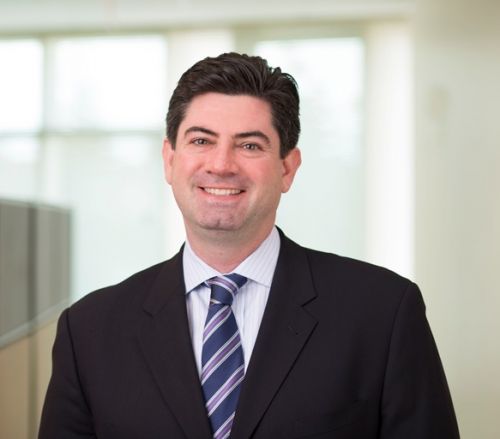 PERSON OF THE WEEK: David Gansberg is president and CEO of Arch Mortgage Insurance, one of the largest nationwide providers of private mortgage insurance (PMI). Earlier this year, the company launched Arch Mortgage Guaranty (AMG), which was specifically created for mortgage loans held in portfolio or included in private securitizations, as well as to insure various types of non-standard mortgages that are outside of the parameters of government-sponsored enterprises (GSEs) Fannie Mae and Freddie Mac. MortgageOrb recently interviewed Gansberg to learn more about the company's rationale behind the launch of AMG and what it is going to take for the private-label security (PLS) market to come back.
PERSON OF THE WEEK: David Gansberg is president and CEO of Arch Mortgage Insurance, one of the largest nationwide providers of private mortgage insurance (PMI). Earlier this year, the company launched Arch Mortgage Guaranty (AMG), which was specifically created for mortgage loans held in portfolio or included in private securitizations, as well as to insure various types of non-standard mortgages that are outside of the parameters of government-sponsored enterprises (GSEs) Fannie Mae and Freddie Mac. MortgageOrb recently interviewed Gansberg to learn more about the company's rationale behind the launch of AMG and what it is going to take for the private-label security (PLS) market to come back.
Q: Tell us about the timing of the launch of AMG. Why does Arch feel the climate for this is now favorable?
Gansberg: We're seeing an increased demand from our bank customers to retain a significant number of mortgage loans in their portfolios. The improving economy, the high credit quality of today's mortgage loans, higher guaranty fees charged by the GSEs since the financial crisis and the flexibility to customize products for specific markets make holding the loans on balance sheet more attractive.
Many mortgage originators also like the relative return characteristics of these assets and, as a result, have a strong appetite to retain – rather than sell – these loans. According to a recent study by Urban Institute, bank portfolio lending reached a 10-year high last year, representing 27% of total mortgage market originations in 2014.
The private securitization market was once a very deep and robust market but today is quite small. There are many participants and pieces that need to come together to revive the market – but we believe that AMG will provide a strategic solution that will help facilitate the market's return.
AMG can offer credit enhancement in securitizations through PMI on an individual loan basis or on a pool basis – whichever is more effective. AMG also provides a unique master policy that offers investors piece of mind knowing that AMG has the ability and willingness to meet its contractual obligation to pay claims. Given the PMI industry's past challenges in paying claims, our customers are seeking out financially sound companies that provide the products and services they need.
Q: Other than jumbo, what types of loan products do you see making up the mix of the PLS market in the years to come? Do you expect lenders to start originating more non-qualified mortgage (non-QM) loans?
Gansberg: The current PLS market mainly comprises jumbo mortgages. Historically, however, the largest part of the PLS market has been conventional, conforming loans, often as an alternative execution to the GSEs. In the near term, we view this as the biggest potential for the return of the PLS market.
To a lesser degree, other loan types, such as jumbos and higher loan-to-value loans with credit enhancement are part of the mix. But, these could be part of opening up the securitization market in the medium term. Non-QM loans are a small part of the market today, but we think that potential exists for this to increase over time.
Regulatory uncertainty is still a big issue around non-QM loans and market participants need to get comfortable with this in the overall environment. We're cautiously optimistic about the PLS market and non-QM originations, and we stand ready to do this business whenever it ramps up.
Q: How are the challenges in the overall health of the real estate impacting the securitization market? How does PMI factor into this?
Gansberg: One of the biggest challenges for the broader real estate market, as well as the market for originations, is that it's currently below its historical size. Part of this is due to the impact of the low interest rate environment and challenges to get yield on loans. Even if you look at the recent forecast from Freddie Mac which predicts that total mortgage originations in 2015 will rise to $1.35 trillion, this is dramatically smaller than the market was a decade ago.
The overall mortgage market is improving, gaining in size and strength, which is affecting the securitization market. PMI is one means to increase the availability of credit, while offering prudently underwritten loans. The return of the securitization market will also help the mortgage market to grow.
Q: What are the current market trends and how are previous constraints in the PLS market being overcome?
Gansberg: We see a number of big issues in today's market, including creating consistency in reps and warrants, the enforceability of repurchases, how to treat buy-backs, as well as defects in origination or origination errors and how these get treated. Under AMG's securitization master policy, loan repurchases will lead to rescissions – not the other way around, as was done in the past. Although we're not there now, there's a chance that, over time, AMG could offer the third-party due diligence or deal manager services. Fulfilling a dual role in underwriting both the credit and the mortgage insurance could certainly create efficiencies. Â
Q: Would you say that regulatory uncertainty surrounding the PLS market is abating?
Gansberg: Securitization was, and can again become, an efficient platform for raising private capital, reducing the cost of credit and transferring risk, but during the housing crisis, defective loans were originated and put into PLS.
Recent regulatory enhancements have addressed this problem, and Dodd Frank touched this in a couple of ways. The first is that rating agencies were required to publish reps and warrants and enforcement mechanisms on the deals, and how they deviated from other deals that were done. The second is enhanced data sharing for investors, including due diligence standards, exceptions disclosure and enhanced reporting of repurchase requests, so that they don't have to solely rely on rating agency reviews to determine risk. But, overall, there's been an increase in transparency and commonality of the securities.
Another evolving idea is that the development of a GSE common securitization platform could be used for the PLS market going forward. Because this initiative is being funded by taxpayers, it would be a real societal benefit that would bring benefits to the securitization market, not just the GSEs. Ultimately, this would help provide access for smaller banks and regional originators to the market, not just the largest banks.
Q: What are the economics and the motivations behind the launch of AMG to serve this market?
Gansberg: We thought the launch of AMG was timely, given the government's initiative to de-risk and de-leverage the GSEs and bring more private capital into the housing market. AMG is an ideal company to support that initiative. We view AMG's product offerings as helping to further homeownership opportunities across a number of sectors, including higher loan-to-value loans, the millennial market, underserved markets and more. AMG will help more families obtain financing in order to purchase a home and realize the American Dream of homeownership.













